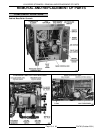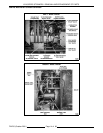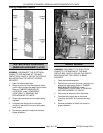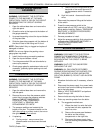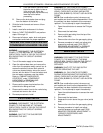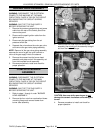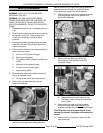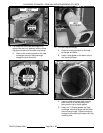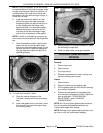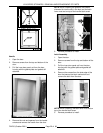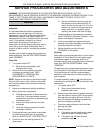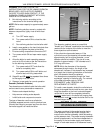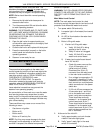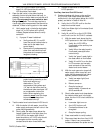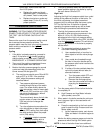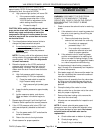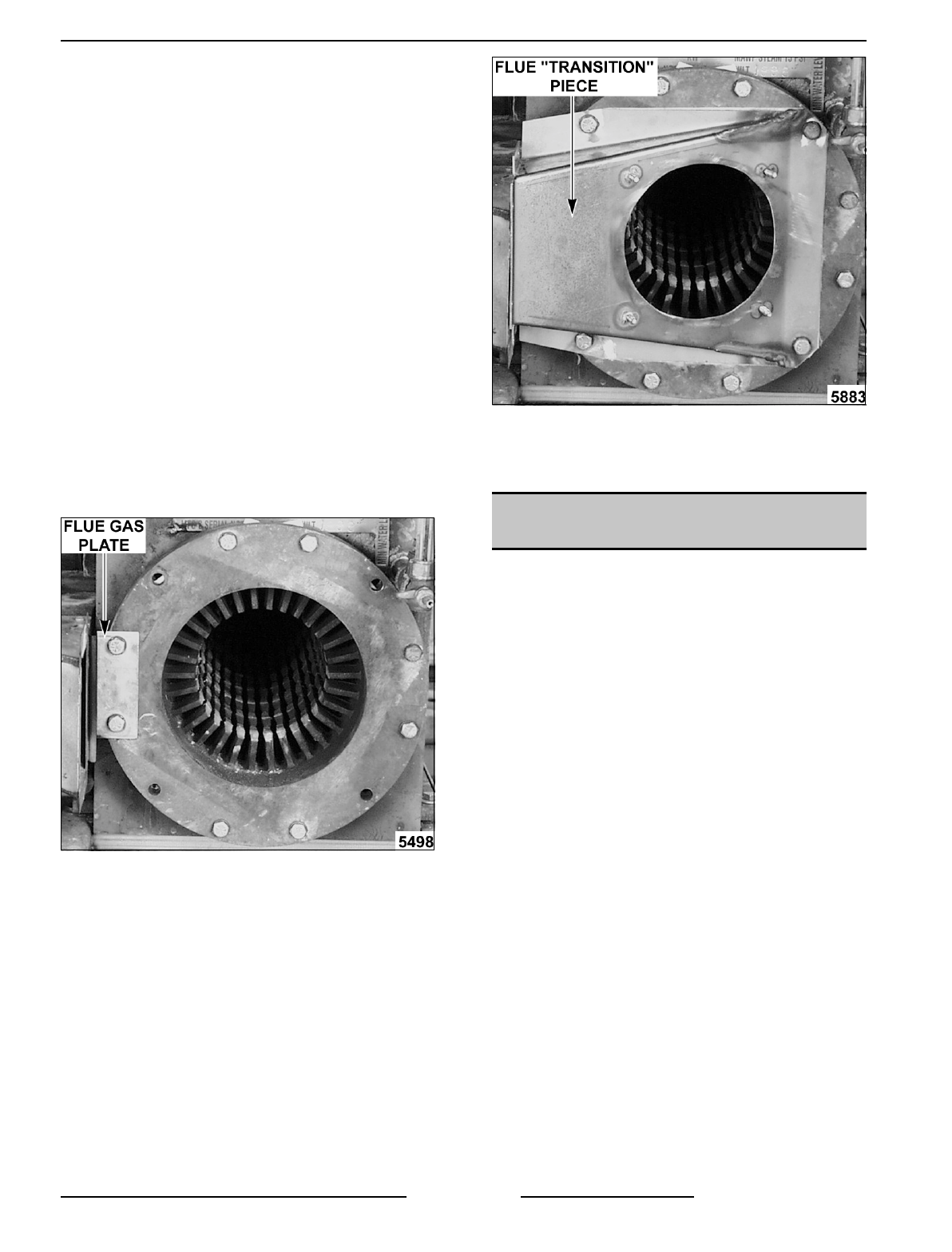
VHX SERIES STEAMERS - REMOVAL AND REPLACEMENT OF PARTS
F24700 (October 2001)Page 21 of 68
NOTE
: It may be necessary to use two clamps
to draw the bottom of the heat exchanger close
enough to be clamped. Start one clamp at a 3
o’clock position then install other clamp near
the bottom. Once the bolts are tight enough, C-
Clamp will fall away.
E. Install two bolts at the bottom and two
bolts at the top on the heat exchanger
flange and tighten the bolts a few turns at
a time. Starting with the bottom bolts,
tighten the bolts in an alternating pattern
between the bottom and top for a flush
mounting of the heat exchanger flange
and an even compression of the gasket.
NOTE:
If a bolt is not threading in properly by
hand, clean out the threads with the proper size
tap.
F. Once those bolts are tight, install the two
bolts to the left and the two bolts to the
right on the heat exchanger flange. On the
left side, be sure to install the rectangular
flue gas plate then tighten the bolts in an
alternating pattern.
14. To install flue "transition" piece:
A. Clean the mating surfaces on the
"transition" piece and the heat exchanger
face.
B. Install new gasket on the "transition" piece
then secure to the heat exchanger using
the remaining bolts.
15. Starting at step 12, reverse procedure to install
the remaining components.
16. Check for water leaks and proper operation.
COOKING COMPARTMENT
DOOR(S)
Removal
1. Remove top cover.
2. Open the door.
3. Pull hinge rod up.
4. Reverse the procedure to install, making sure
the door bushings are in place.
Gasket
1. Open the door.
2. Remove screws from the gasket plate.
3. Pull the gasket plate out from the door housing
and remove the gasket.
4. Position the new gasket on the gasket plate
and reverse the procedure to install. Adjust the
door as outlined in "DOOR SEALING
ADJUSTMENT" under "COOKING
COMPARTMENT".
NOTE:
Do not over tighten gasket plate screws as
this will compress the gasket excessively and
interfere with proper door sealing.
NOTE:
Damage to the gasket sealing surface, such
as nicks or cuts, will cause steam leakage.



